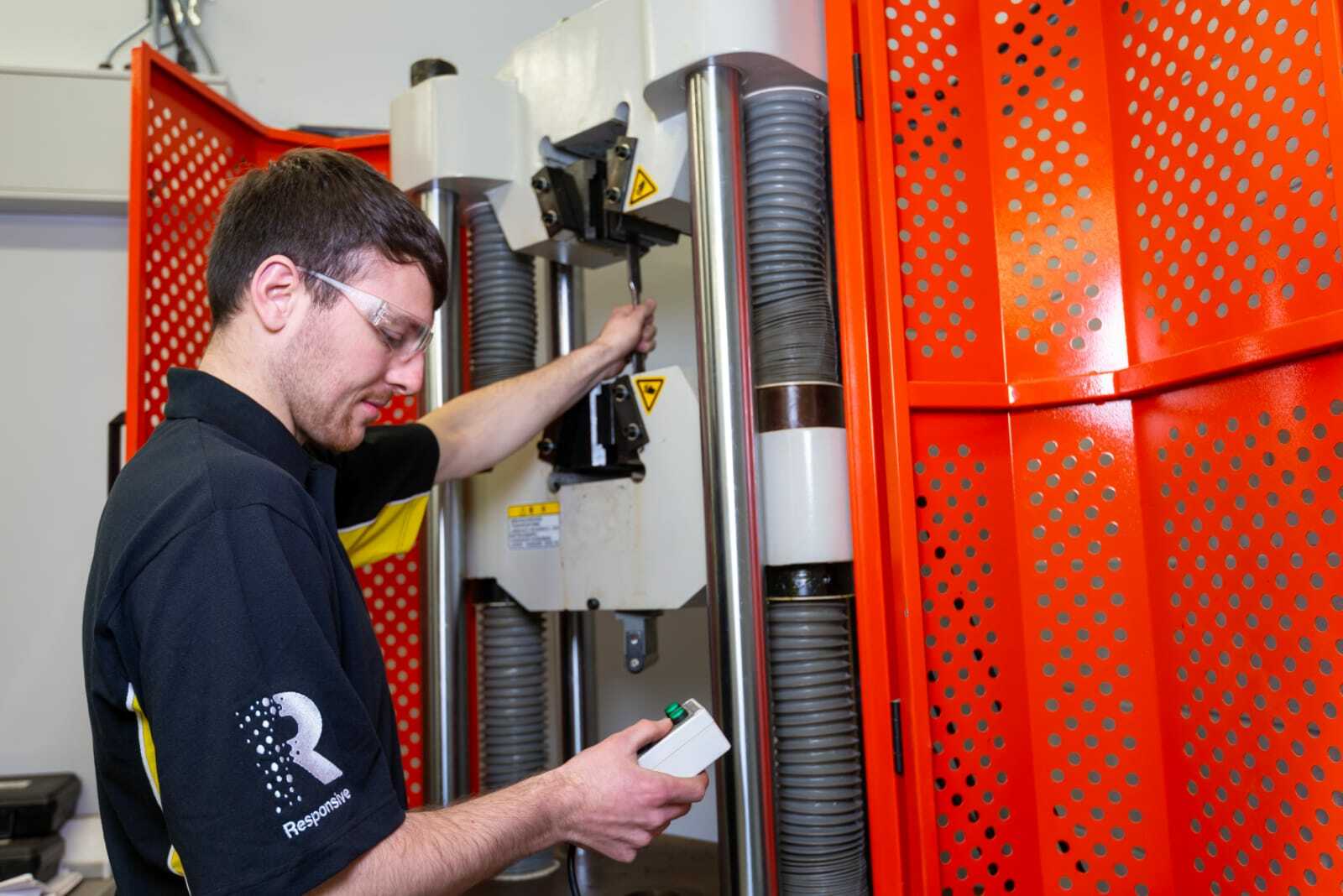Tensile testing of materials is an essential part of engineering and is used for a variety of purposes, such as welder qualifications and welding procedure qualifications. Tensile testing is used to determine the strength and ductility of materials, which is important for ensuring the safety and reliability of engineering projects.

Tensile testing of materials is performed according to standards set by organizations such as the British Standards Institute (BSI), the American Society of Mechanical Engineers (ASME), and the American Society for Testing and Materials (ASTM). These standards determine the test methods, specimen preparation, and test conditions that must be followed in order to ensure accurate and reliable results. The tests are typically performed using a tensile testing machine, which applies a force to the specimen and measures the resulting strain.
The results of tensile testing are used to determine the suitability of materials for use in engineering projects. For example, welders must be qualified to ensure that they have the necessary skills and knowledge to perform their job safely and effectively. Welding procedure qualifications are also necessary to ensure that the welding process meets the applicable standards and specifications. Tensile testing is an essential part of these qualifications, as it provides valuable information about the strength and ductility of the materials being used.
In conclusion, tensile testing of materials is an important part of engineering and is used for a variety of purposes, such as welder qualifications and welding procedure qualifications. The tests are performed according to standards set by organizations such as the BSI, ASME, and ASTM, and the results are used to determine the suitability of materials for use in engineering projects.